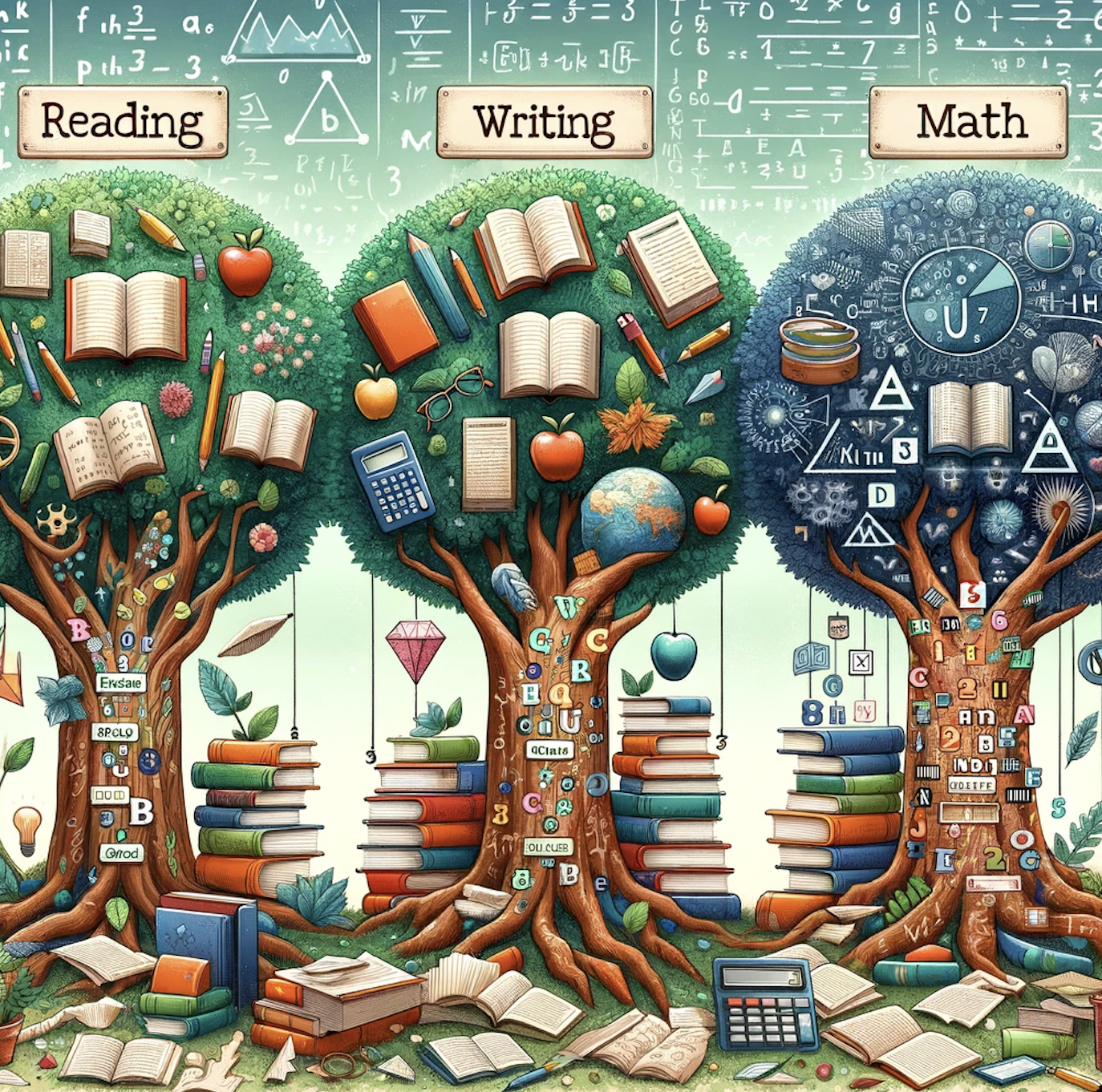Cognitive Development of Key Academic Skills

Image Source: ChatGPT 4
Although there are many different academic skills that children develop during school, in this chapter, we will focus on three foundational abilities: reading, writing, and math.
Reading
Reading is a critical academic skill that progresses from simple decoding to understanding complex texts. When children enter kindergarten, they can typically recite and write the alphabet (Puranik, Lonigan, & Kim, 2011). Teachers can build onto this base knowledge through phonics instruction, which helps children learn the sounds of letters and how to blend them into words. This can then progress to decoding words, where children are able to use their understanding of phonemes to correctly pronounce and identify a written word, and eventually to reading independently (Ehri,1987). Once a child can read independently, which often occurs during the second or third grade for most students, additional instruction and practice will help them improve their reading speed, accuracy, and expression. At that point, teachers can also use reading as a learning medium to help students develop their reading comprehension skills (Fiester, 2010). As children enter middle and high school, their reading skills should extend beyond fluency to include understanding complex texts, for example, interpreting metaphors, drawing inferences, and analyzing themes.
Writing
To write effectively, a child must master a variety of both cognitive and physical developmental skills. In the early elementary years, children develop fine motor skills for handwriting, which include learning how to correctly hold a pencil and how to accurately write letters. As children develop their understanding of phonemes for reading, they should also begin to combine sounds to create written words, and later, simple sentences. By the second or third grade, they should have a basic understanding of grammar and punctuation rules and can typically begin to write paragraphs or short essays focused on a specific theme or purpose. In middle and high school, writing involves planning, organizing ideas, creating compelling content, and revising for clarity and coherence (Paris, Ricardo, & Rymond, 2019).
Math
Mathematical thinking evolves from understanding concrete representations to abstract problem-solving. Before children can learn math, they must first develop number sense, which includes learning to count, recognizing numbers, and understanding the concepts of more and less. Once they have mastered those concepts, they can begin performing basic operations such as addition and subtraction, and eventually progress to multiplication and division. By the time a student has reached middle school, they should be able to complete all basic mathematical operations independently and understand fractions and decimals. In high school, more abstract mathematical concepts can be introduced, including symbolic reasoning in algebra and spatial reasoning in geometry (Paris, Ricardo, & Rymond, 2019).
Think, Write, Share
- In the early elementary years, what are some key developmental skills needed for effective handwriting?
- Why is developing number sense essential for learning math? What concepts are included in number sense?
- As children enter middle and high school, how should their reading skills extend beyond fluency? What specific skills should they develop to understand complex texts?
Application Challenge
Choose one of the key academic skills described above and write three lessons plans for that skill: one for elementary school students, one for middle school students, and one for high school students. Describe the different skills that are required for each activity and how the lesson will help assess an understanding of this skill.